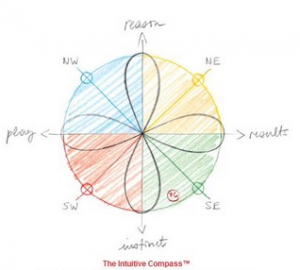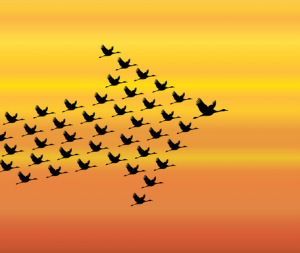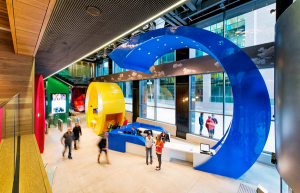 Excerpted from Francis Cholle’s The Intuitive Compass, Jossey-Bass
Excerpted from Francis Cholle’s The Intuitive Compass, Jossey-Bass
The business world has been turned upside down by the rapid adoption of technological innovations and the globalization of many industries. Today, the creativity of corporate executives is increasingly called for in all areas of business, and courageous behavior is needed as much as creative thinking. Increasingly complex market scenarios laden with erratic disruptors require executives to have the confidence to step into the unknown and make decisions even in the face of confusion. Although traditional business thinking typically focuses on three- to five-year strategies created with sophisticated analytical processes and logical reasoning, this approach is no longer ideal. Because the future is uncertain expert systems software or scenario planning methodologies are at best limited tools. Today’s fast-emerging, often unpredictable scenarios call for an agile imagination to seize emerging opportunities, and a new model that allows for such.
The Intuitive Compass™ was designed to help us develop new behaviors and new ways to make decisions. It is a tool to help us access our instinct and leverage play in order to innovate, develop disruptive ideas, imagine new sustainable business solutions, and reinvent the way we approach value creation. The Intuitive Compass™ was invented to help organizations thrive in the new economy while enhancing the sustainability of our practices.
We’ve already begun to look at the influence of play in our approaches to innovation, the role of instinct in leadership and value creation and the tension that each faces: play lives in tension with our need for results, and instinct lives in tension with our cultural inclinations toward reason and logic. Play and instinct are the roots of creative imagination, and they both influence our behaviors at their core. We are instinctual beings by nature and logical beings by culture. The Intuitive Compass™ simply shows that linear efficiency and logic do not have to dominate our approaches to life and work, and it provides alternative ways to conduct business. It indicates how to balance and integrate the best of what both logic and instinct have to offer.
The Compass is organized around the usual four cardinal point one finds in a navigation compass: north, east, south, and west.
In the north you find reason (our capacity to conceive ideas and analyze data) and opposite, in the south, you find instinct (our capacity to survive and adapt). In the east you find results, representing the outcome of linear efficiency, and opposite, in the west, you find play, which represents an erratic process comparable to the creative process. This diagram shows play and instinct coming together in the southwest quadrant, where creativity can be unleashed. The Intuitive Compass™ is designed to help people better understand where creative ideas come from and how to access their own genius and uncover meaningful ideas. It make the complexity of the creative process simple to see and it provides a clear roadmap to creative problem solving.









